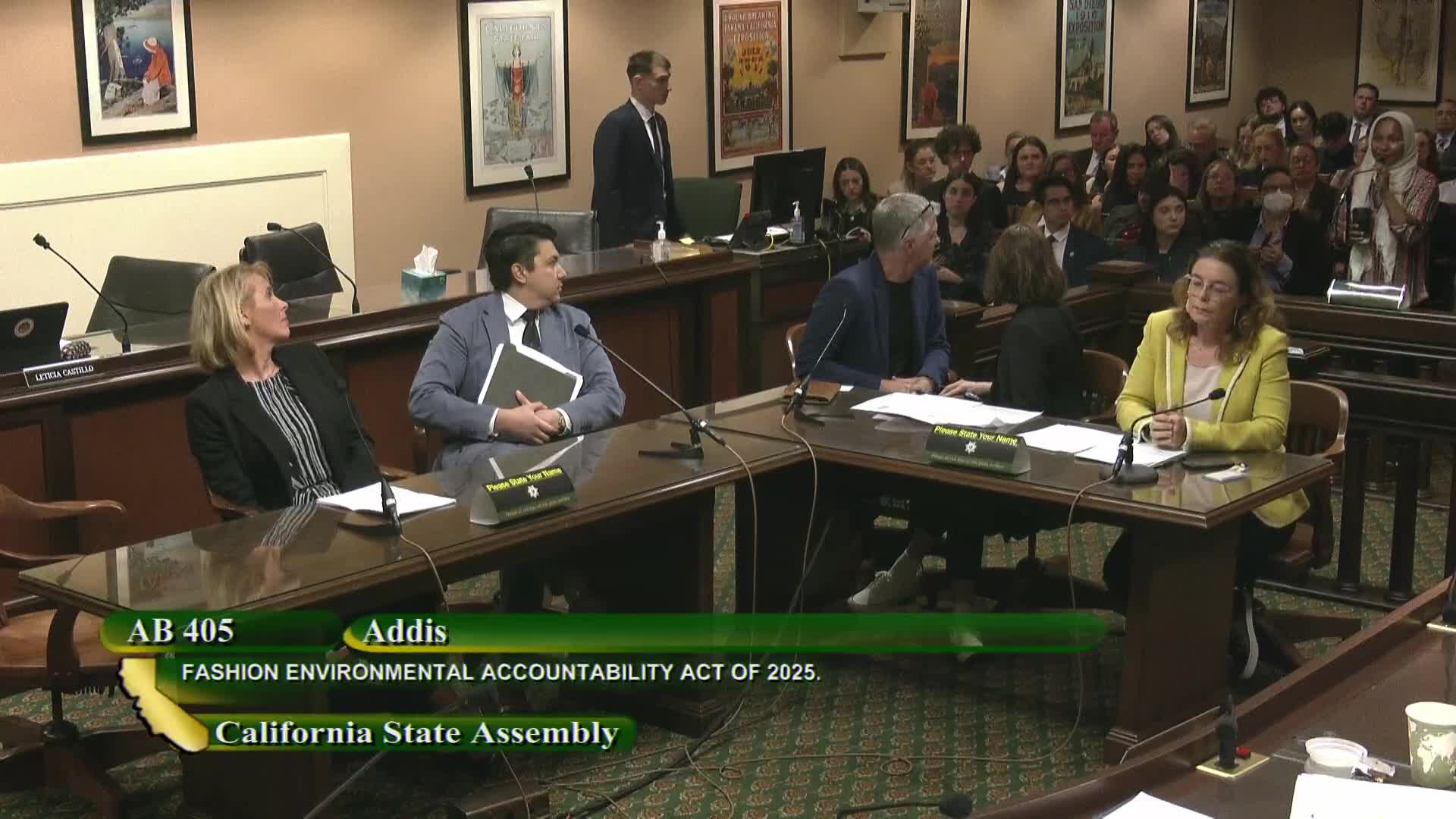Article not found
This article is no longer available. But don't worry—we've gathered other articles that discuss the same topic.
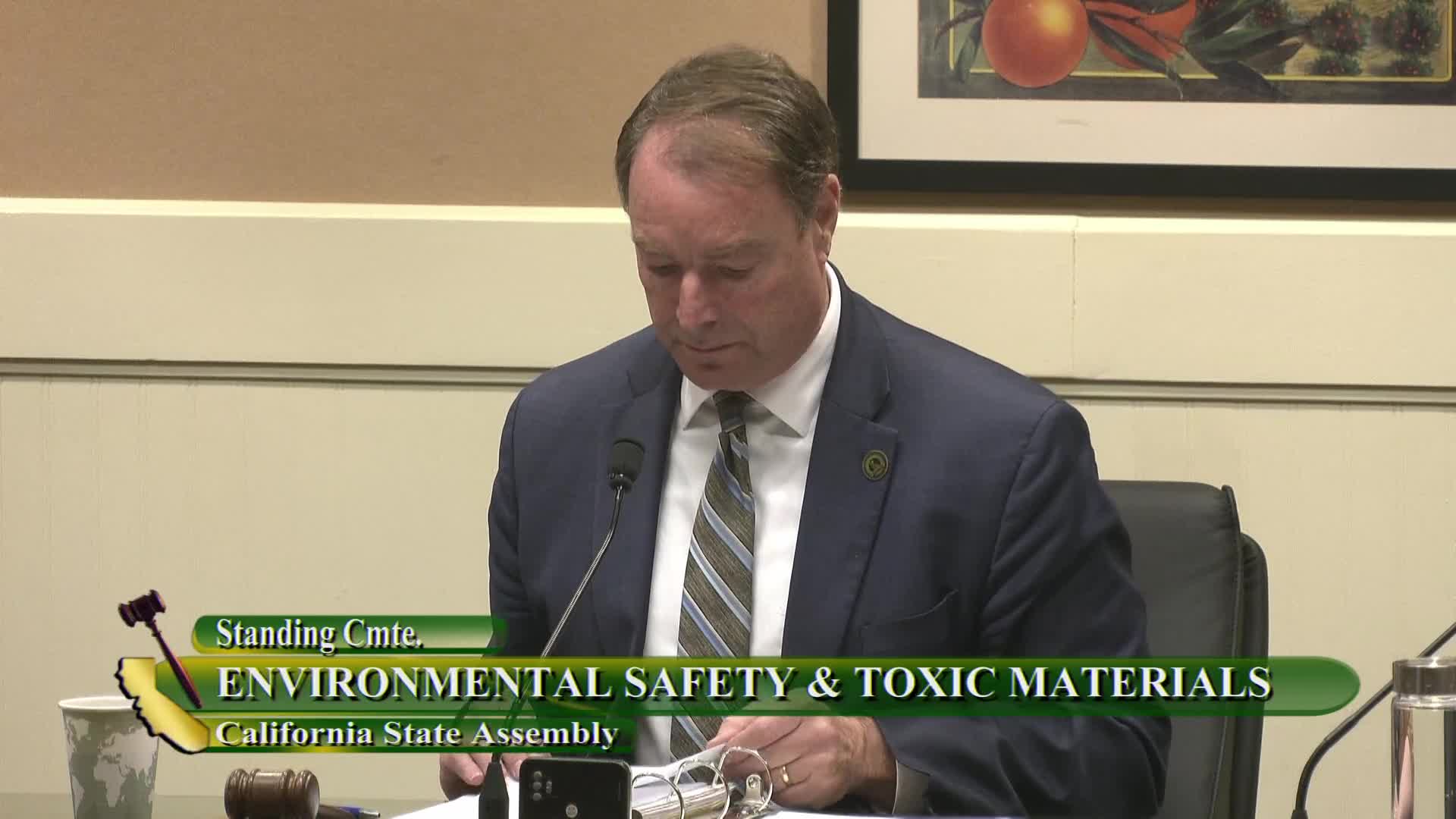
Assembly committee advances Fashion Act to curb toxic chemicals in apparel
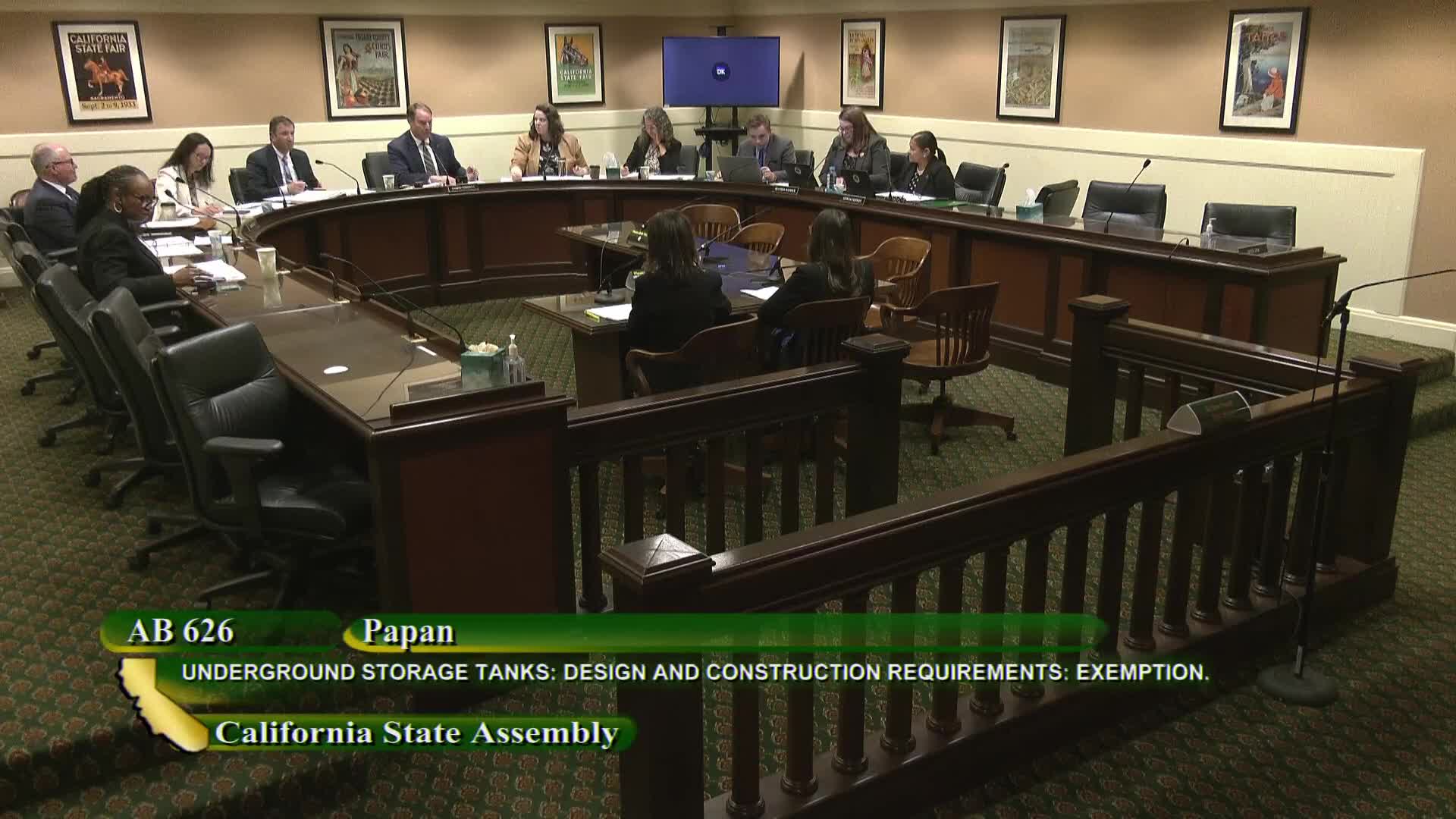
Committee approves grace‑period measure for underground‑storage‑tank operators facing permitting delays
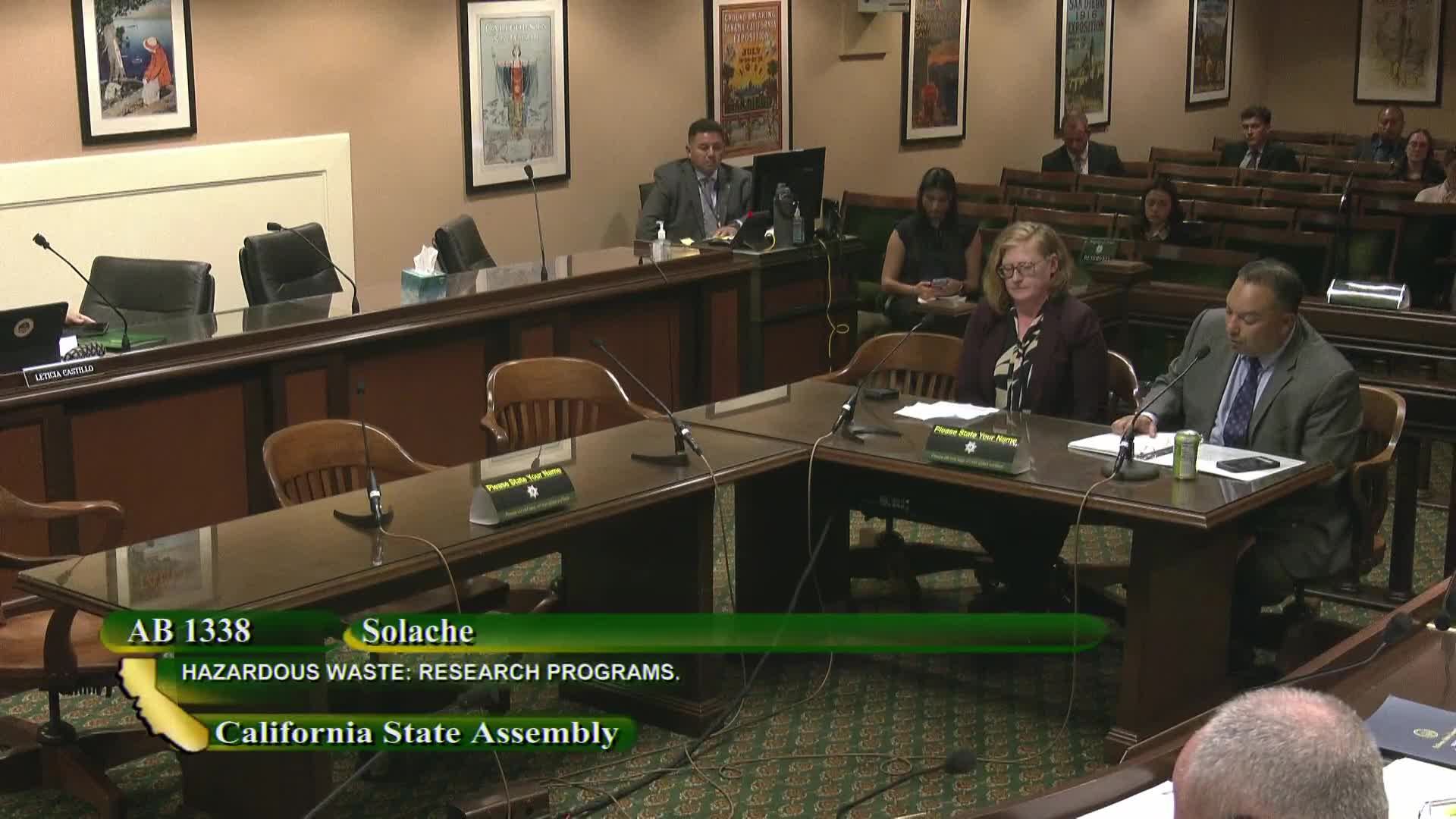
Committee approves bill allowing air districts to recover costs of fence‑line monitoring at metal shredders
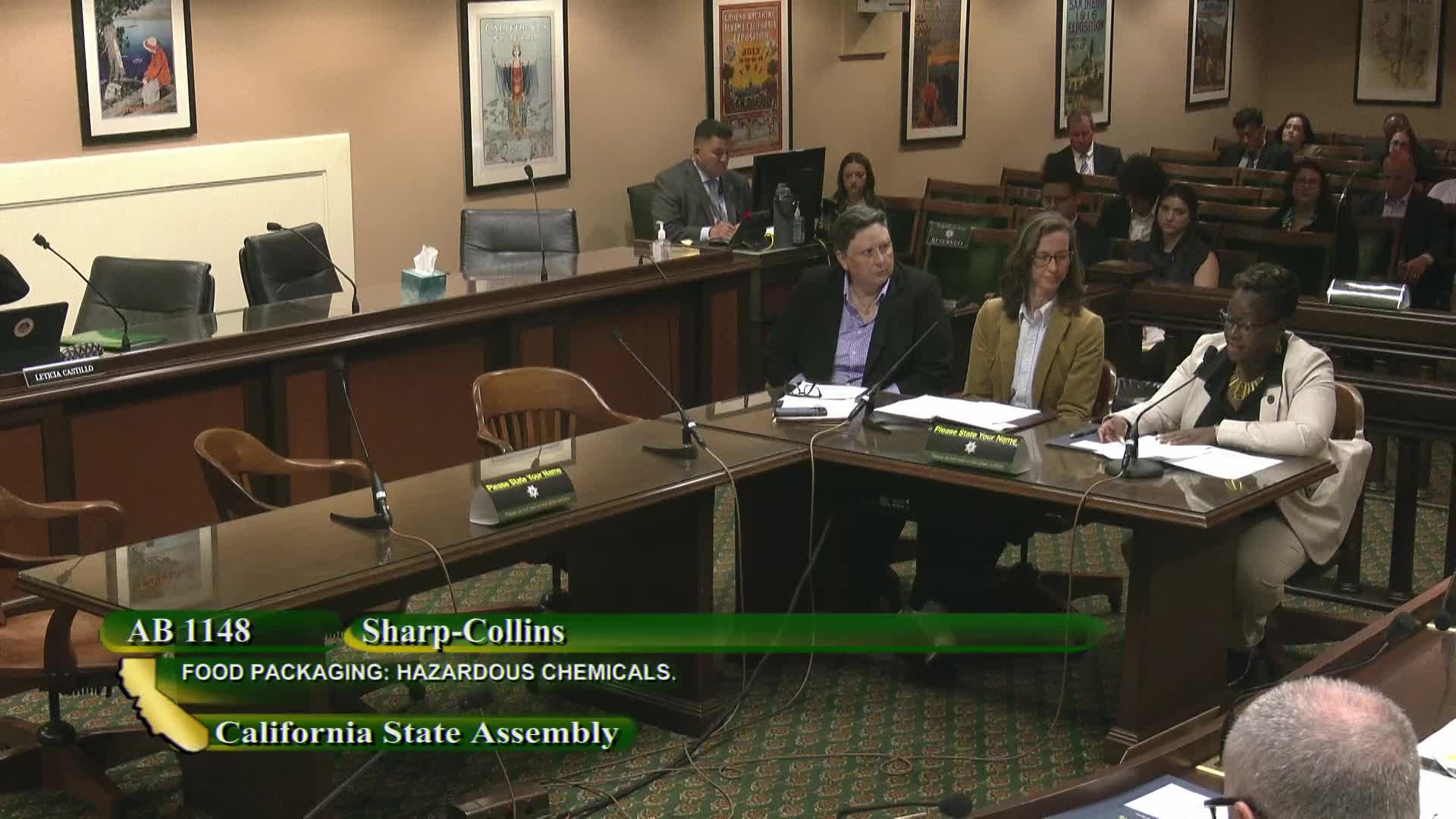
Committee advances Safer Food Packaging Act to ban certain chemicals from food contact materials
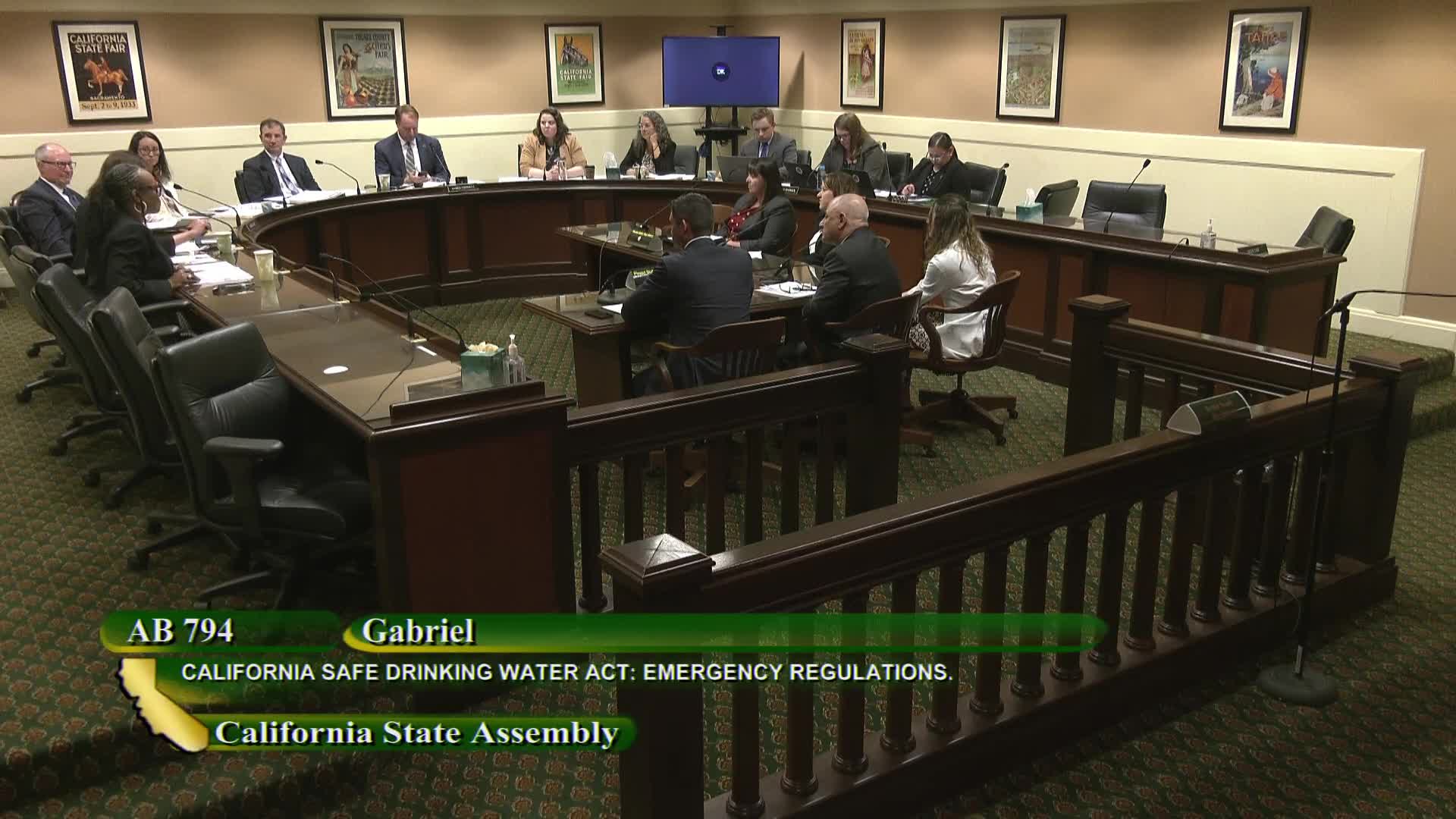
Committee backs state-level bill to lock in federal PFAS drinking-water standard
